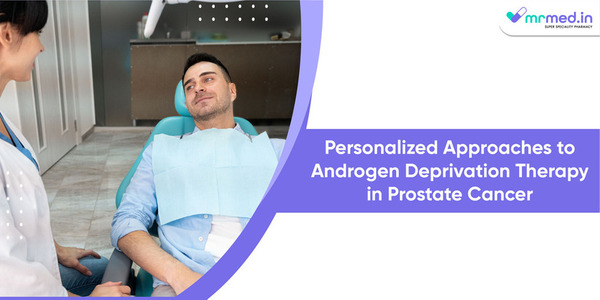Prostate cancer is defined as the growth of abnormal cells in the prostate gland, which is a small muscular reproductive gland in the male. It is the most common cancer in men all over the world. Most men are often unaware of this disease due to the lack of less prominent symptoms, which leads to the spread of cancer in other parts of the body (advanced stage). Early detection and appropriate treatments can help to overcome prostate cancer effectively. Today, we are going to discuss the stages, symptoms, causes, diagnosis, and treatment of prostate cancer in the advanced stages.
Symptoms of Prostate Cancer
Prostate cancer does not show any prominent symptoms in its early stage. However, when the disease progresses and spreads to the prostate gland, the patient may experience some common symptoms, which are given below:
- Urinary problems: Prostate cancer leads to the enlargement of the prostate gland, which affects the urethra and leads to urinary problems.
- Blood in Urine or Semen: The presence of blood in the urine may indicate prostate cancer.
- Erectile Dysfunction: Nerves and blood vessels can impact around the area and are responsible for erectile dysfunction.
- Pain and Discomfort: Advanced prostate cancer can lead to pain in the pelvic area, lower back, hips, or upper thighs. This discomfort may be persistent and progressively worsen over time.
- Bone Pain: Prostate cancer can spread to bones in the advanced stage, which leads to bone pain, particularly in the spine, hips, and pelvis.
Stages of Prostate Cancer
Prostate cancer can be categorized into three stages based on the TNM system, which is given below:
- Tumour (T) stage
- Node (N) stage
- Metastasis (M) stage
Among the above stages, the M stage is the advanced stage of prostate cancer in which the cancer has started to spread to different parts of the body.
Androgen Deprivation Therapy In Prostate Cancer
Androgen Deprivation Therapy (ADT) is the mainstay of treatment in advanced stages when the disease has spread beyond the prostate gland. Androgens are essential for the production of testosterone, which acts as a fuel for the growth of cancerous prostate cells. This therapy aims to block the action of this androgen. It shuts down the action of testosterone, thereby eradicating tumor cells. It is the gold standard and often the first-line treatment for advanced prostate cancer.
Conventional ADT, like surgical and medical castration, reduces androgen synthesis. Still, nonsteroidal ADT inhibits the androgen receptor itself, providing the solution to prostate cancer problems. These nonsteroidal ADTs do their work without reducing the amount of synthetic androgens.
Calutide 50mg tablet contain bicalutamide, which is one of the early-developed antiandrogens. It has been used widely for many years. It can also be used in combination with surgical castration of androgen deprivation therapy or LHRH therapy.
Other anti-androgen medications for prostate cancer therapy are nilutamide, flutamide, enzalutamide, apalutamide etc.
Personalised approach in Prostate Cancer
Personalized medicine is a relatively new field that focuses on building a patient's treatment plan according to their genetic mutations, molecular profile, and clinical history. When it comes to prostate cancer, androgenic mutations play a crucial role in determining the best treatment plan, depending on the unique characteristics of each patient. Mutations in genes like BRCA1, BRCA2, and ATM are studied, and treatment options are developed accordingly specific to each patient's gene mutations. Patients are given personalized treatment based on the assessment of Gleason score, PSA levels, tumor stage, and metastasis presence. A limited number of patients are treated with intermittent ADT regimens to reduce side effects, maintain therapeutic efficacy, and preserve quality of life.
Some of the side effects of ADT include,
- Loss of sex drive or libido
- Night sweats and hot flashes
- Reduced bone density
- Weight gain
- Depression or mood swings
- Decreased concentration and poor memory
- Muscle weakness
Conclusion
By employing precision medicine techniques using antiandrogenic medications, we can significantly change the course of treatment guidelines in prostate cancer. Further research and newer discoveries are constantly evolving, and precision medicine holds a promising future approach to treating various cancers.




